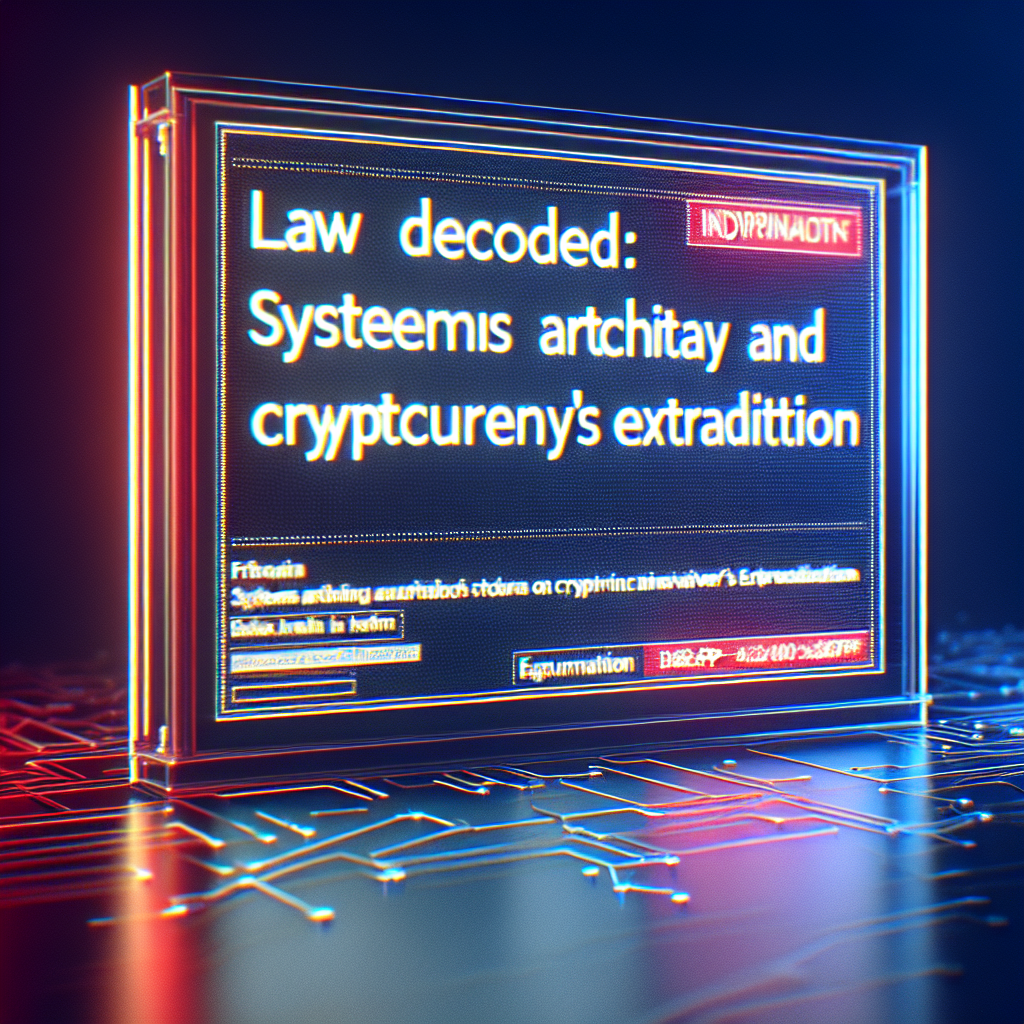Law Decoded: CZ’s Stay and Do Kwon’s Extradition

As the world of cryptocurrency continues to evolve, so too does the legal landscape surrounding it. Two recent cases involving prominent figures in the crypto industry, Changpeng Zhao (CZ) of Binance and Do Kwon of Terraform Labs, highlight the complexities and challenges of navigating this new frontier.
Understanding the Legal Landscape
Before delving into the specifics of these cases, it’s important to understand the broader legal context. Cryptocurrency operates in a largely unregulated space, which has led to a variety of legal issues. These range from questions about taxation and securities law to concerns about money laundering and fraud. As governments around the world grapple with how to regulate this new technology, the legal landscape continues to shift.
The Case of CZ and Binance
Changpeng Zhao, better known as CZ, is the founder and CEO of Binance, one of the world’s largest cryptocurrency exchanges. Binance has faced scrutiny from regulators around the world, including in the United States, the United Kingdom, and Japan. The main issue at hand is whether Binance has been operating without the necessary licenses and whether it has adequate measures in place to prevent money laundering and other illicit activities.
Despite these challenges, CZ has remained in his position at Binance and continues to navigate the complex regulatory landscape. His approach has been to cooperate with regulators and to adapt Binance’s operations to comply with local laws. This has included hiring former regulators and investing in compliance measures.
Do Kwon’s Extradition and the Terraform Labs Case
Do Kwon, the founder of Terraform Labs, is facing a different set of challenges. He is currently facing extradition to the United States on charges related to the operation of his cryptocurrency exchange, BitMEX. The U.S. government alleges that BitMEX failed to implement adequate anti-money laundering measures and operated without a license.
Unlike CZ, Kwon has chosen to fight the charges. He argues that BitMEX was operating outside of U.S. jurisdiction and that the charges are an overreach by U.S. authorities. The outcome of this case could have significant implications for other cryptocurrency exchanges operating internationally.
Key Takeaways
- The legal landscape for cryptocurrency is complex and evolving. Regulators around the world are grappling with how to apply existing laws to this new technology, leading to a variety of legal challenges for those operating in the space.
- The cases of CZ and Do Kwon highlight two different approaches to navigating these challenges. CZ has chosen to cooperate with regulators and adapt his operations to comply with local laws, while Kwon is fighting the charges against him.
- The outcomes of these cases could have significant implications for the broader cryptocurrency industry. They highlight the need for clear and consistent regulation, as well as the potential risks for those operating without the necessary licenses or compliance measures.
Conclusion
In conclusion, the cases of CZ and Do Kwon underscore the complexities of the legal landscape for cryptocurrency. As this industry continues to evolve, it will be crucial for those operating in it to stay abreast of changing regulations and to ensure they are operating within the law. The outcomes of these cases could set important precedents for the future of cryptocurrency regulation.
